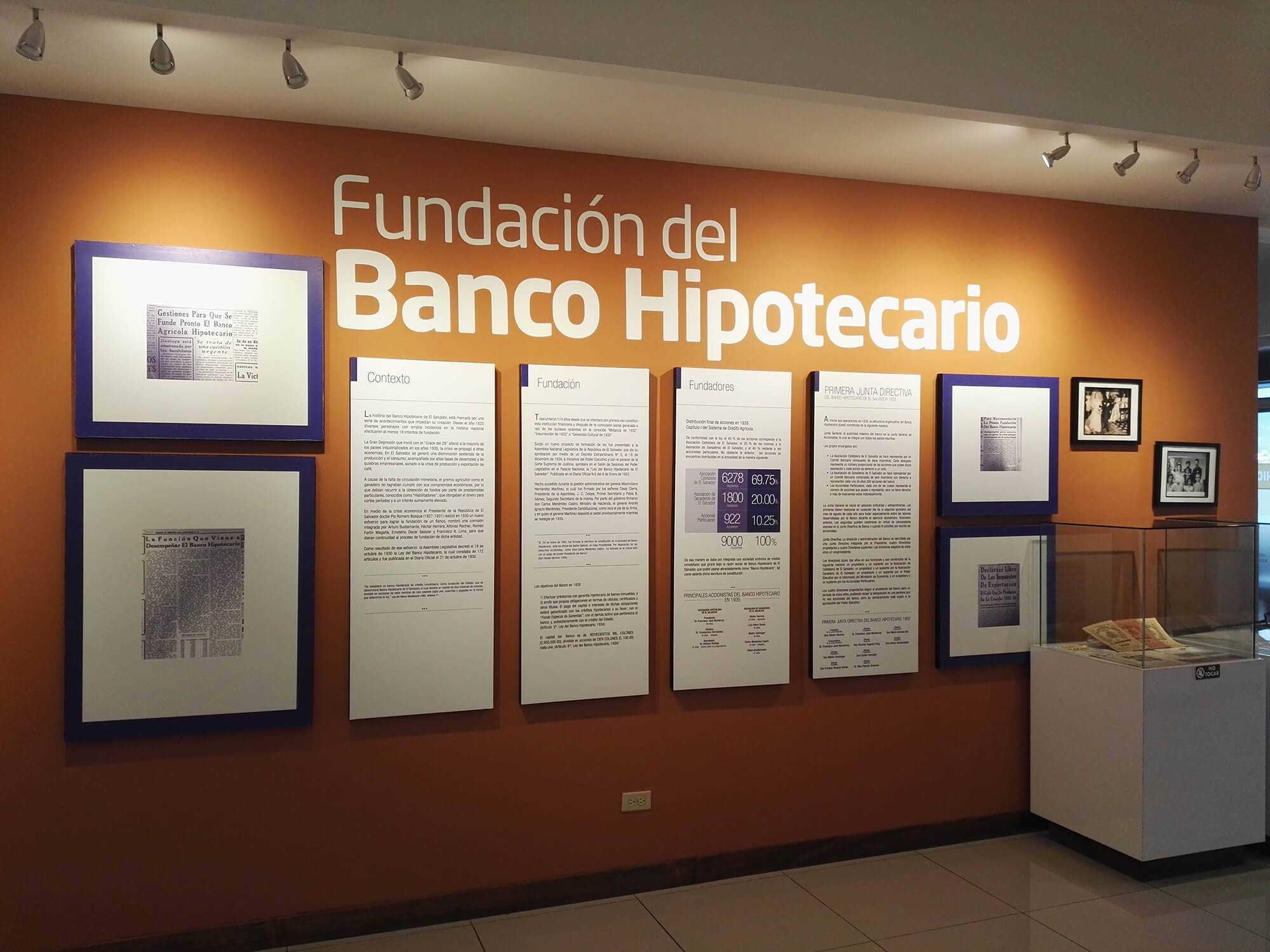
CHRONOLOGICAL DEVELOPMENT OF THE ATTEMPTS FOR FOUNDING A MORTGAGE BANK IN EL SALVADOR
| 1820 |
First attempt: Driven by the difficulties faced by farmers at the time, the pro-independence leaders advocate the foundation of a mortgage bank.The historical context of the time was before the declaration of independence of the Central American provinces of the Spanish crown. |
| 1867 | |
| 1872 | |
| 1874 | |
| 1882 | |
| 1883 | |
| 1886 | |
| 1889 | |
| 1892 | |
| 1912 | |
| 1913 | |
| 1921 | |
| 1922 | |
| 1926 | |
| 1929 | |
| 1930 | |
| 1931 | |
| 1934 |
FOUNDATION OF BANCO HIPOTECARIO
The National Legislative Assembly of the Republic of El Salvador enacted the Extraordinary Decree number 5 that contained the Law of the Mortgage Bank of El Salvador, which established the creation of a Real Estate Credit Bank. It had two main objectives: the first one was to make loans with mortgage guarantee and the second one, to issue its own obligations in the form of IDs, certificates, or other titles.
One hundred and fifteen years after the first attempts to found a Mortgage Bank, on January 29, 1935; Banco Hipotecario de El Salvador S.A. (Mortgage Bank of El Salvador) was created. The public deed of incorporation was signed in the city of San Salvador, in the presence of the lawyer and Notary Emeterio Oscar Salazar, and was registered in the Commercial Registry in charge of the first court of civil and commercial matters.
This event occurred during the administrative management of General Maximiliano Hernández Martínez. It was signed by Mr. César Cierra, President of the Assembly; JC Zelaya, First Secretary; and Pablo B. Gómez, Second Secretary. On behalf of the government, it was signed by Mr. Carlos Menéndez Castro, Minister of Finance and General Andrés Ignacio Menéndez, Constitutional President, power provisionally given by General Martínez while he was re-elected in 1935.
The extraordinary decree number 5 established that the shareholders of the Banco Hipotecario should be the Coffee Association of El Salvador with a 40% stake; Cattlemen’s Association of El Salvador with 20%; and private shareholders with 40%. The latter should be at least 12 people. The founding social capital of the Bank was 900,000 colones.
Despite the provision of the decree number 5, the shares were distributed as follows:
Coffee Association of El Salvador – 6278 shares 69.75%
Cattlemen’s Association of El Salvador – 1800 shares 20.00%
Other private shares – 922 shares 10.25%
| Shareholder | N° of shares | % total |
| Coffee Association of El Salvador | 6278 SHARES | 69.75% |
| Cattlemen’s Association of El Salvador | 1800 SHARES | 20.00% |
| Other private shareholders | 922 SHARES | 10.25% |
Following article 41 of the Public deed of incorporation of the company, the first Board of Directors was organized as follows:
| President of the Board of Directors | Don Héctor Herrera |
| Vice-president of the Board of Directors | Dr. Francisco José Monterrey |
| 1. Owner Director | Mr. Walter Deininger |
| 1. Substitute Director | Mr. Enrique Álvarez Drews |
| 2. Owner Director | Dr. Francisco José Monterrey |
| 2. Substitute Director | Mr. Ricardo Sagrera Puig |
| 3. Owner Director | Mr. Emilio Herodier |
| 3. Substitute Director | Dr. Max Patricio Brannon |
| 4. Owner Director | Mr. Mario Antonio Sol |
| 4. Substitute Director | Mr. Arturo Bustamante |
This Board of Directors held their first session on the same day of the signing of the public deed of incorporation, at 8:00 p.m., in the office of Dr. Emeterio Oscar Salazar. In that meeting, they agreed that as long as it does not have its own building, the Bank’s operations would begin in the social headquarters of the Coffee Association of El Salvador.
On April 24 of that same year, the first issue of 10-year mortgage securities at 6% annual interest was agreed. On May 31, the Board of Directors agreed to grant the first mortgage loan to Mr. Antonio Lopez, for the amount of 2,000 colones, with a term of 3 years at a 6% annual interest. It included a mortgage guarantee on a property located in the San Jacinto neighborhood and another located next to the Polar brewery, becoming.
